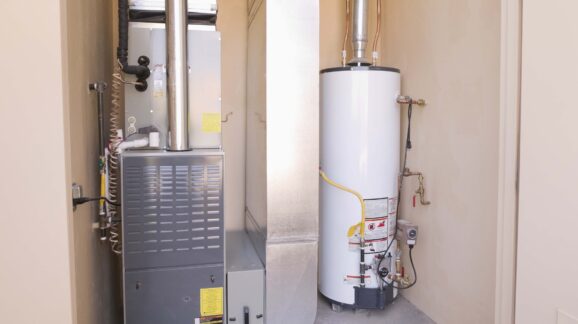Senate should support S.J.Res.4 repealing Biden’s anti-consumer water heater regulation

Photo Credit: Getty
The Biden administration gave us far too many anti-consumer appliance regulations, and some of the worst were ones supported by manufacturers angling to create a captive market for their high-priced “eco-friendly” models. This is precisely what happened with a Biden Department of Energy (DOE) regulation targeting the most affordable type of gas-fired instantaneous (tankless) water heaters. The Senate will soon vote on S.J.Res.4 which would repeal this ill-advised rule. Senators should ignore the companies hoping to kill off their lower priced competition and support this legislation that will do what is best for consumers.
As CEI and numerous organizations explained in a February 26, 2025 coalition letter in favor of the House version of this measure – which subsequently passed in a bipartisan manner – the December 2024 DOE efficiency rule was tailor-made to force non-condensing gas fired instantaneous water heaters off the market. In support of this rule were environmental activists as well as some manufacturers of competing water heater types that would benefit from the elimination of this lower cost option. Now, these manufacturers are back to save this rule by opposing S.J.Res.4.
Unfortunately, this kind of opportunism is not new. For years, some water heater makers have aggressively lobbied Washington for laws and regulations that dictate product features in ways they favor. For example, a 2022 House bill would have effectively mandated that all new electric water heaters come equipped so they can be shut on and off by the electric utility. Thankfully, this extreme measure went nowhere, notwithstanding a strong lobbying push on the part of certain manufacturers. The Biden era rule being challenged here is no better in terms of dictating to consumers what they can and cannot have.
It is important to keep in mind that the costlier but supposedly greener water heaters favored by the opponents of S.J.Res.4 will remain on the market whether or not this measure becomes law. The only subject at issue is whether they get shielded from competition with cheaper versions.
Manufacturers who support the DOE rule claim that the higher upfront cost of their models is earned back in the form of reduced utility bills. This is debatable and it fails to recognize that there are numerous factors going into purchasing decisions. But in any event, the question is not which kind of water heater is best but rather who gets to decide such things. For the sake of choice as well as affordability, the Senate should take the side of consumer freedom over government mandates.